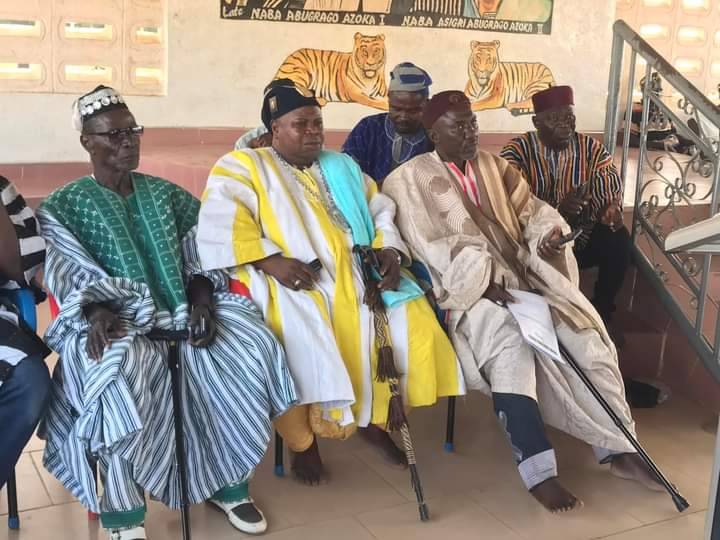Breaking News: Kusaug Traditional Council Declares Intent to Sever Ties with Settler Mamprusi Community in Bawku
In a significant and potentially historic announcement, the Kusaug Traditional Council has declared its intention to sever all relations with the settler Mamprusi community in Bawku, a decision with implications for social, commercial, and inter-community engagements. This development highlights the longstanding tensions between the Kusasi and Mamprusi communities in Bawku, a region known for its rich history and cultural diversity, but also marked by complex socio-political challenges.
The announcement issued by the Kusaug Traditional Council explicitly warns that any individual who visits the house of Seidu Abagre, a notable figure within the Mamprusi community, would be considered an adversary to the Kusaug people. The council has gone further to caution that any individual visiting Seidu Abagre’s house must remain there or face "the full consequences" upon departure.
Historical Context and Implications
The relationship between the Kusasi and Mamprusi communities has often been fraught with disputes over land, chieftaincy, and cultural recognition. Bawku, a pivotal location in Ghana's Upper East Region, has witnessed a history of such complex engagements, which sometimes spill into tensions over rightful traditional authority and the recognition of local governance structures.
As the Kusaug Traditional Council releases this statement, it is evident that the decision reflects a deep-seated sentiment among parts of the Kusaug community. However, observers have cautioned that this move might deepen divisions and fuel tensions, potentially affecting commerce, social exchanges, and the long-standing cultural interactions that many residents rely upon for their livelihoods.
Potential Impact on Commerce and Inter-community Relations
The statement underscores that the decision applies to "all aspects," which includes commercial and other forms of interaction. In a region where trade and commerce are critical for local livelihoods, this directive could lead to disruptions in the daily lives of residents from both communities. It could affect the market dynamics in Bawku, a town known for its bustling trade and significant economic interactions between various ethnic groups.
The announcement may also impact inter-community relationships beyond commerce, including areas of mutual social interest, educational interactions, and collaboration in regional development projects. Given Bawku's location and role in the larger Upper East Region, any prolonged disruption in inter-community relations could reverberate throughout the area.
Call for Mediation and Peaceful Dialogue
While the Kusaug Traditional Council’s declaration represents a strong stance, there is a call from various stakeholders for calm and mediation. Local leaders, government representatives, and peacebuilding organizations have, in the past, played active roles in bridging divides within Bawku. Many are now calling for both Kusasi and Mamprusi leaders to engage in open dialogue, underscoring the importance of peaceful resolution mechanisms that prioritize the safety, development, and unity of the Bawku region.
Historically, traditional councils and national authorities have intervened in Bawku’s communal conflicts, recognizing that dialogue and collaboration are essential to preventing violence and fostering lasting peace. This latest statement from the Kusaug Traditional Council reinforces the urgency of continued efforts to find common ground, particularly on contentious matters tied to cultural and land rights.
Moving Forward
As this declaration makes headlines, it is clear that both the Kusasi and Mamprusi communities face a critical juncture. There is a need for open dialogue, moderated by impartial entities, to ensure that any resolution upholds the dignity and interests of all parties involved. The road ahead may be complex, but through patience, negotiation, and a shared commitment to the prosperity of Bawku, a peaceful solution can still be pursued.
In the meantime, stakeholders in both communities are urged to exercise restraint and seek constructive avenues to address grievances. The Ghanaian government, regional councils, and peacebuilding organizations will likely be closely monitoring the situation and working to mediate a peaceful and sustainable resolution.




No comments yet
Be the first to share your thoughts!